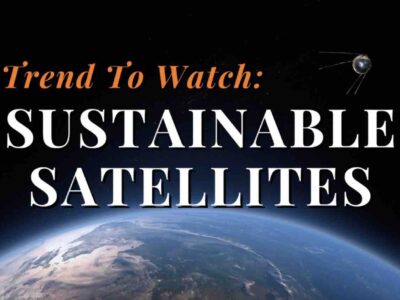(Bloomberg Businessweek) —
Meg Starr grew up in a Cape Cod home her dad had built by hand. The electricity came from solar panels, the water was drawn from a well in the backyard, and three compost bins supported the gardens and the chickens. Every Sunday, she split logs to fuel the fire.
“My parents make incredible choices at the most micro level,” Starr says. “I just grew up assuming that everyone made those decisions, because they were the rational decision to leave the world the same as, if not slightly better than, how we found it.” Only later did she realize that “it’s a privilege to live that way.”
Starr now sits in a very privileged place, as a high-level partner at Carlyle Group Inc., where she’s pushing the private equity giant and its rivals into an industrywide experiment in sustainability. With every investor having a different idea of what “sustainability” means, Starr was determined to develop a cohesive standard to measure it and track its relationship to market returns. Few investors are likely to put money toward doing good without proof that it can lead to profits.
The result of Starr’s work is the ESG Data Convergence Initiative (EDCI). It collects anonymized data annually from roughly 4,300 companies backed by more than 275 buyout firms. Social measures include the percentage of women in the C-suite and labor statistics such as net new hires and employee turnover. Information in the database covers greenhouse gas emissions, renewable energy usage and work-related accidents.
But to make the project work, Starr had to persuade PE firms to share detailed data about their investments. That was no small thing to ask billion-dollar rivals in a world that notoriously favors secrecy.
When Starr joined Carlyle in 2019, the ESG movement was on the upswing, with its promise that investments weighing environmental, social and governance concerns would yield better returns. As the global head of impact, she found herself bombarded by more than 300 data requests each year from the pensions, sovereign wealth funds and other Carlyle investors who were seeking to direct their money to companies that helped them meet ESG goals.
For years, Carlyle had been collecting its own sustainability data that it thought could boost performance. More diverse boards, for example, were found to be correlated with greater profits at Carlyle-backed companies. But the findings were limited, because the dataset didn’t include enough companies or cover enough time. “We can go out and talk all we want about how carbon efficiency leads to better valuation multiples, but unless we have a statistically significant dataset,” Starr says, “we don’t actually know.”
In early 2020, she called a contact at the California Public Employees’ Retirement System, the largest pension system in the country. The people whose retirement money Calpers manages were pushing it to invest in areas that would lead to better outcomes for the planet, but Calpers Chief Executive Officer Marcie Frost at the time told Bloomberg News that she was uncertain whether that would also lead to better financial returns. So Calpers came on board the data project to help Starr round up investors.
In a series of calls during the pandemic, Starr set out to sign up other companies to the EDCI. She got the buy-in of Boston Consulting Group (BCG) to collect and analyze the data. Many initially resisted the idea of sharing information, but Starr emphasized that she was trying to solve a problem all the firms faced: providing investors with reliable data on the sustainability of their holdings. “We’re not writing our own report card. We’re held to the same report card, which helps unleash competition,” she says.
By the end of 2021, Blackstone Inc., the world’s largest private investment firm, and a half-dozen others had agreed to share an aggregated set of information that didn’t identify individual companies to the other participants. Eight more private equity investors joined Calpers as well. Together, that group of 16 oversaw $4 trillion in assets. By 2024 the EDCI had more than 400 participants overseeing $28 trillion of assets worldwide.
“We live in a capitalist economy,” Starr says, “and if we want the big flows of capital to actually go in a direction that will stave off disaster, we do need to make it such that it is a smarter thing to be thinking about carbon efficiency. You can’t just pound the table and say you should.”
The initiative has been met with a degree of pushback for its lack of specificity, because it doesn’t identify individual companies. “Our perspective is, without public disclosure, the EDCI is ultimately useless,” says Jim Baker, executive director at the Private Equity Stakeholder Project. Anonymized data doesn’t provide the type of transparency that could lead to accountability, he says. “They should publicly disclose data on emissions, employee deaths and injuries, and diversity,” Baker says. “If they’re already collecting the data, what do they have to hide?”
Typically, private equity firms have agreements with their portfolio companies as well as their limited partners that limit data disclosure. Carlyle and many others provide more granular data than what’s available in the EDCI directly to their own investors.
What’s publicly known about EDCI’s results is a mix so far, according to BCG’s report for 2023. Larger companies owned by private equity firms have been decarbonizing faster than publicly owned companies in the same sector. But smaller companies have lagged. Starr says that’s to be expected. Private companies “tend to be earlier in their sustainability initiatives,” she says, adding that tracking the data over years could help identify progress. “Companies are inherently more immature when they come into private equity portfolios, compared with publicly traded ones.”
ESG investing has been the target of attacks from mainly conservative critics who call it an unserious, virtue-signaling marketing tool or a liberal plot that gives Wall Street too much power over companies. More than a dozen Republican-led states have enacted anti-ESG laws that restrict green considerations in investing, contracts and other decision-making. Starr herself has issues with the term “ESG,” saying “the vocabulary is becoming distracting from the actual work.” She prefers to say “sustainability,” meaning the ability to persist over time. “It’s about: How do we create sustainable businesses with durable cash flows that can perform over the long term?”
Whatever it’s called, the push for more mindful investing is an existential question for the industry. With private equity assets expected to surpass $11 trillion by 2026, a group of professors and BCG veterans writing in the Harvard Business Review in 2022 argued that the industry itself would be at risk without a better approach to sustainability. The “social license to operate is not guaranteed,” the group wrote. And the list of demands for change is long.
“We’re going to have to decarbonize fashion. We have to decarbonize building materials,” Starr says. “We have to decarbonize tech businesses and where they’re pulling their energy and data from.” Starr, who was elevated this year to become a deputy to Carlyle CEO Harvey Schwartz, now oversees government affairs in addition to sustainability, bringing the issue even closer to the C-suite. “Everyone cares about driving financial performance. This is one of the ways we drive financial performance,” she says. “You don’t have to call it sustainability if you don’t want to.”
Read next: KPMG Study Reveals Surprising Plan for ESG Spending by Companies
To contact the author of this story:
Sonali Basak in New York at sbasak7@bloomberg.net
© 2024 Bloomberg L.P.





